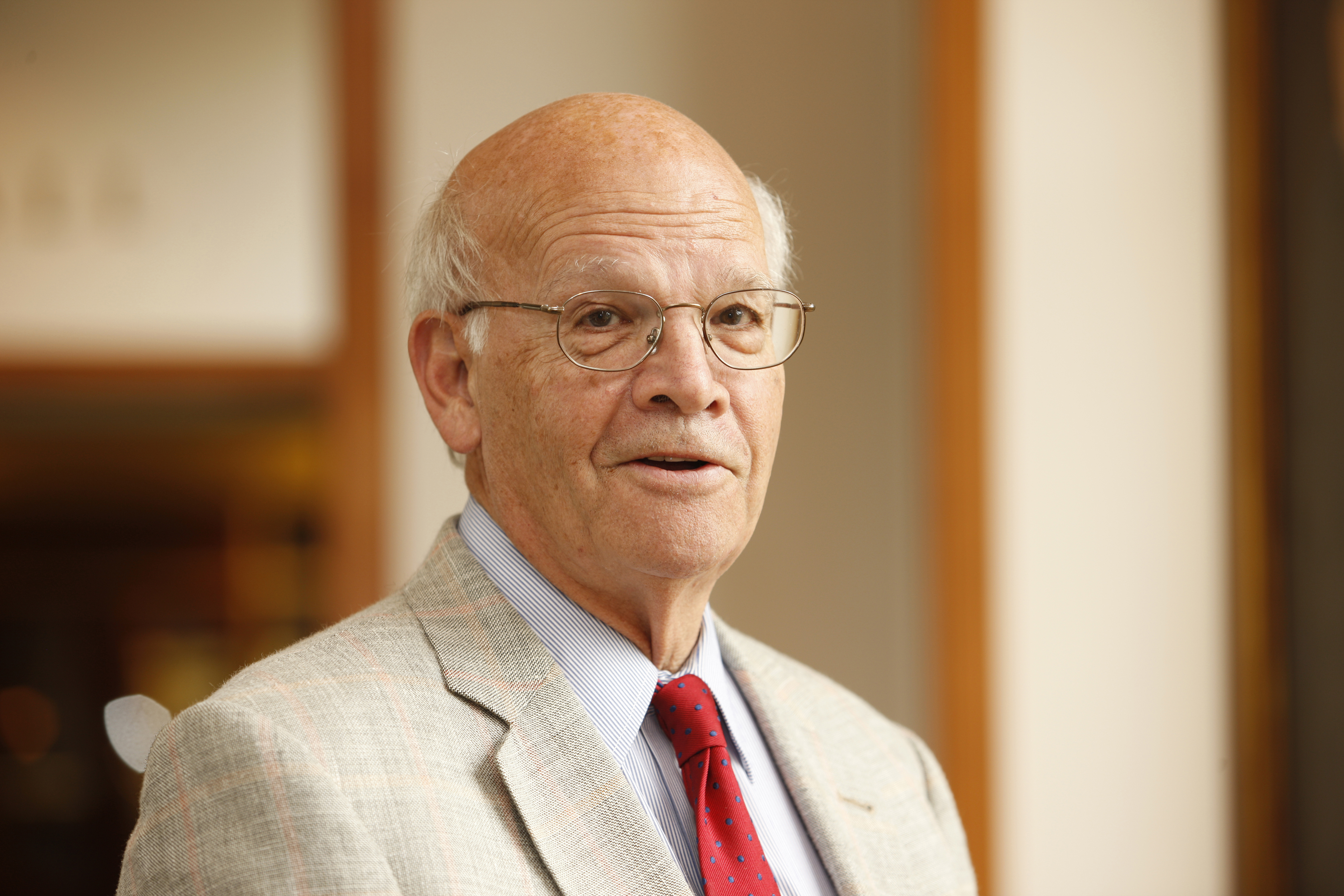Two University of Virginia law professors demystify the disappearing art of public speaking in a new book that explains how to master vital rhetorical skills.
"Tongue-Tied America: Reviving the Art of Verbal Persuasion," by Robert Sayler and Molly Bishop Shadel, was released last week by Aspen Publishers.
Sayler and Shadel teach oral advocacy at U.Va.'s Law School and co-wrote the book in part to combat what they see as a national decline in public speaking ability.
"The American education system has shortchanged teaching oral presentation in a pretty serious way," Sayler said. "You can see this reflected in our political dialogue and in dialogue on the street."
The decline may be due to a variety of factors, including the erosion of rhetoric as an educational discipline and technological changes that de-emphasize face-to-face communication skills, the authors said. Whatever the reason, the ramifications go beyond increases in the number of people uncomfortable addressing a jury, boardroom or lecture hall, Shadel said. The ability to convincingly articulate ideas aloud is an important skill for any citizen of a democracy.
"If you can't say what you think, you aren't going to be able to persuade anybody else in the citizenry to follow your lead," Shadel said. "And if you don't understand the basics of verbal persuasion, then you might be easily swayed by somebody who is playing fast and loose with the facts."
Though the book targets law students and lawyers, the material is broadly accessible and important for people in nearly any field, the authors said. About 80 percent of educated adults in America suffer from some form of glossophobia, or the fear of public speaking, Sayler said.
"About half of them have physical manifestations before they speak," he said. "It's the biggest fear there is."
Contrary to popular belief, anyone can develop the basic rhetorical skills necessary to clearly convey ideas in public, the authors said.
"It is true that there are people to whom it comes more naturally than others, and if you have certain things in your background, such as drama or debate, it might be easier for you than the person who is very introverted and nervous," Shadel said. "But we can guarantee you from having taught over a thousand students that this is something anyone can learn to do."
In the book, Sayler and Shadel draw on the teachings of classic rhetoricians to break down the building blocks of effective oral advocacy. They also delve into the practical how-to of public speaking, such as what speakers should do with their hands and feet, and how they should approach voice modulation and cadence.
"We also look at rhetoric around us in the real world: rhetoric in presidential campaigns, rhetoric in the courtroom and in various different places," Sayler said.
The book includes a syllabus of a public speaking course Sayler and Shadel teach at the Law School. In the course, students are required to do extensive oral presentations that culminate in a final speech. The book's website includes videos of some of the best student presentations.
In addition, the book provides examples of some of the best public speaking in history – including Abraham Lincoln's second inaugural address, baseball player Lou Gehrig's farewell to the game and Martin Luther King Jr.'s speech in Memphis, Tenn., shortly before he died – and quantifies the factors that make these famous speeches so effective.
The book's content is similar to what Sayler and Shadel have been teaching for years, and, though it is broadly useful, law students and lawyers might find it particularly helpful, they said.
"You will want this book on your bookshelf if you intend to be a lawyer who is going to talk – which means any kind of lawyer, not just litigators," Shadel said. "Every lawyer has to interact with clients or talk to colleagues. This is a text that will be especially useful for first-year law students because it gives you ideas about how to approach things like moot court, job interviews, interactions with professors and all the sorts of verbal exchanges that you will have."
Sayler and Shadel have extensive experience in public speaking. Sayler is senior counsel and a former partner at the law firm Covington & Burling. Prior to attending law school, Shadel studied theater and directed plays professionally in New York. After working for four years as an attorney in the private sector, she served with the Department of Justice's Office of Intelligence Policy and Review.
"Any law firm is going to consider whether a lawyer is a person who is going to be able to go out and connect with a client, because that's how you get business," Shadel said. "If you can't make a persuasive presentation, you're going to be of much less use."
Media Contact
Article Information
February 28, 2011
/content/uva-law-professors-revive-public-speaking-new-book-tongue-tied-america

